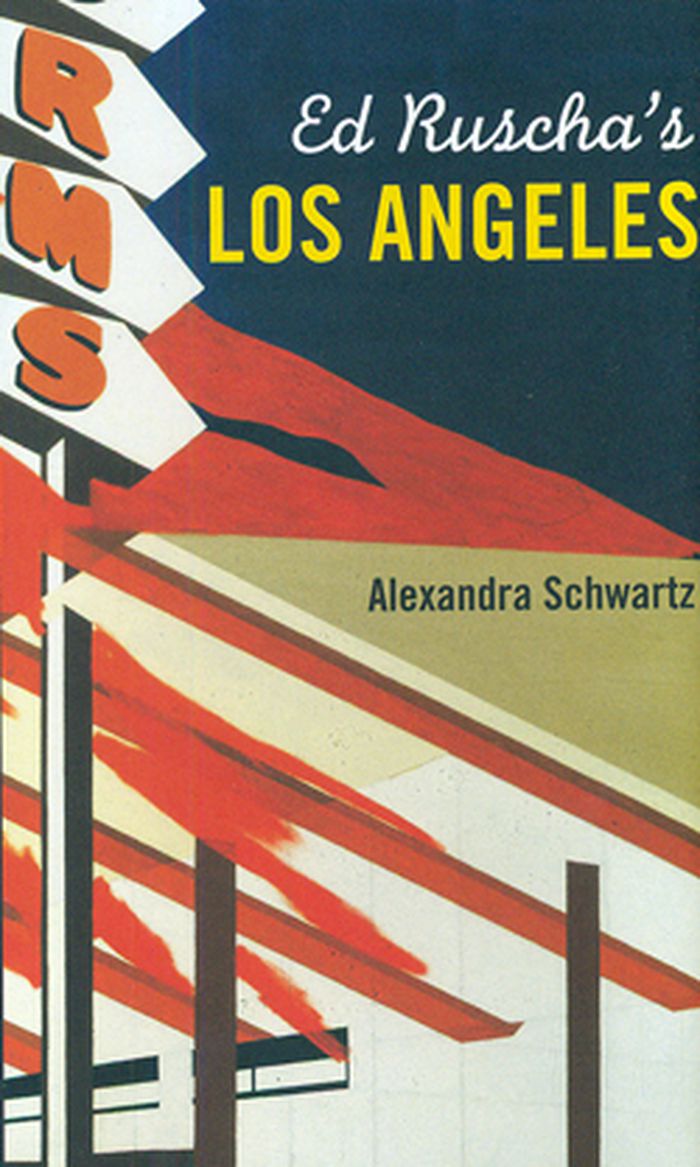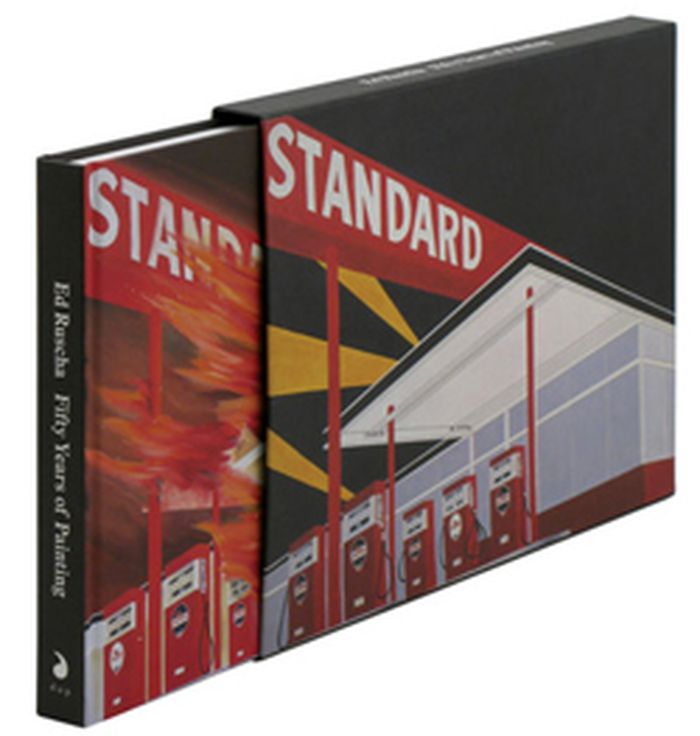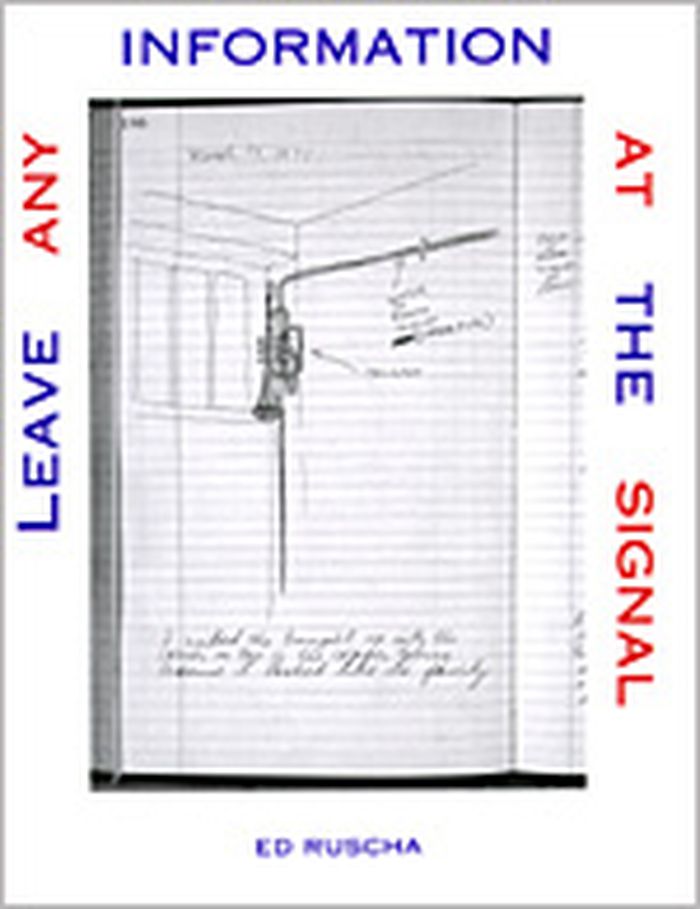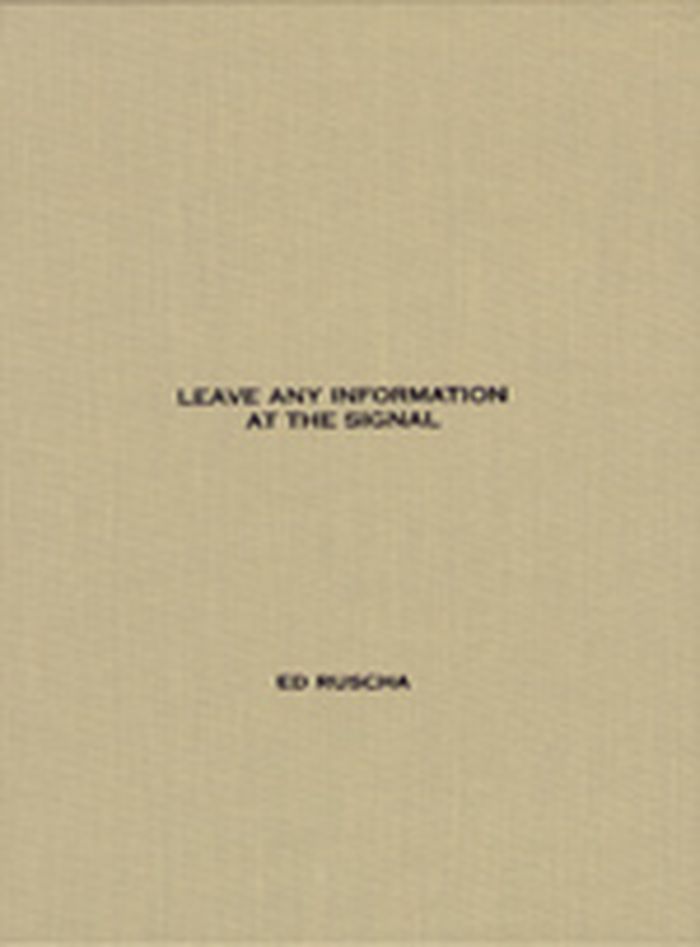Ed Ruscha's Los Angeles
$51.50
(disponible sur commande)
Résumé:
Ed Ruscha was born in Nebraska and raised in Oklahoma, but he belongs to Los Angeles in a way few other artists do. Since the 1960s, Ruscha's iconic images of the cityscape and culture of L.A.—freeway gas stations, parking lots, palm trees, motels, swimming pools, and billboards—have both reflected and shaped popular perceptions of Hollywood and the city that surrounds(...)
Ed Ruscha's Los Angeles
Actions:
Prix:
$51.50
(disponible sur commande)
Résumé:
Ed Ruscha was born in Nebraska and raised in Oklahoma, but he belongs to Los Angeles in a way few other artists do. Since the 1960s, Ruscha's iconic images of the cityscape and culture of L.A.—freeway gas stations, parking lots, palm trees, motels, swimming pools, and billboards—have both reflected and shaped popular perceptions of Hollywood and the city that surrounds it. In Ed Ruscha's Los Angeles, Alexandra Schwartz views Ruscha's groundbreaking early work as a window onto the radically shifting cultural and political landscape in which it was produced.
$72.00
(disponible sur commande)
Résumé:
Transforming words into icons and images into wide-screen epics, Ed Ruscha has wholly reconceived the terms of painting for our era. Tagged variously as a Conceptualist, Pop artist or latter-day Surrealist, Ruscha flouts category, or rather incorporates all categories, always surprising and experimenting with both subject and method. His paintings are steeped in our(...)
février 2010
Ed Ruscha: fifty years of painting
Actions:
Prix:
$72.00
(disponible sur commande)
Résumé:
Transforming words into icons and images into wide-screen epics, Ed Ruscha has wholly reconceived the terms of painting for our era. Tagged variously as a Conceptualist, Pop artist or latter-day Surrealist, Ruscha flouts category, or rather incorporates all categories, always surprising and experimenting with both subject and method. His paintings are steeped in our times: cinema, advertising, logos, late capitalism and the twists and turns of postwar art have all informed his iconography since the early 1960s, arriving on the cool surfaces of his canvases with magnetic detachment. Ruscha eschews process and focuses exclusively on the final product: “the means to the end has always been secondary in my art,” he has said. Ruscha has also reinvented the use of words in art, finding disquieting ways to invest language with a weird, throbbing, ambient static, never aspiring to what he calls “word gestures,” since “each word is an excursion unto itself.” Fifty Years of Painting focuses on Ruscha's majestic oeuvre of paintings. A magnificent publication, it comes housed in a slipcase that sports the artist's classic painting “Standard Station” (1966), and, alongside fantastic reproductions, it contains a preface by novelist James Ellroy, essays by Ralph Rugoff, Alexandra Schwartz and Ulrich Wilmes, a text by novelist Bruce Wagner, an interview with the artist by Kristine McKenna, an illustrated chronology and an exhibition history. Ed Ruscha (born 1937) has made pioneering work in the media of painting, printmaking, drawing, bookmaking, photography and film since 1958.
$37.50
(disponible sur commande)
Résumé:
Ed Ruscha is one of the first Americans to introduce a critique of popular culture and an examination of language into the visual arts. Although he first made his reputation as a painter, Ruscha is also celebrated for his drawings (made both with conventional materials and with food, blood, gunpowder, and shellac), prints, films, photographs, and books. He is often(...)
avril 2004, Cambridge, Mass.
Leave any information at the signal : writings, interviews, bits, pages
Actions:
Prix:
$37.50
(disponible sur commande)
Résumé:
Ed Ruscha is one of the first Americans to introduce a critique of popular culture and an examination of language into the visual arts. Although he first made his reputation as a painter, Ruscha is also celebrated for his drawings (made both with conventional materials and with food, blood, gunpowder, and shellac), prints, films, photographs, and books. He is often associated with Los Angeles as a Pop and Conceptualist hub, but tends to regard such labels with a satirical, if not jaundiced, eye. Indeed, his work is characterized by the tensions between high and low, solemn and irreverent, and serious and nonsensical, and it draws on popular culture as well as Western art traditions. "Leave Any Information at the Signal" not only documents the work of this influential artist as he rose to prominence but also contains his writings and commentaries on other artistic developments of the period. The book is divided into three parts, each of which is arranged chronologically. Part one contains statements, letters, and other writings. Part two consists of more than fifty interviews, some of which have never before been published or translated into English. Part three contains sketchbook pages, word groupings, and other notes that chart how Ruscha develops ideas and solves artistic problems. They are published here for the first time. The book also contains more than eighty illustrations, selected and arranged by the artist.
$67.50
(disponible sur commande)
Résumé:
Ed Ruscha is one of the first American artists to introduce a critique of popular culture and an examination of language into the visual arts. Although he first made his reputation as a painter, Ruscha is also celebrated for his drawings (made both with conventional materials and with food, blood, gunpowder, and shellac), prints, films, photographs, and books. He is(...)
avril 2002, Cambridge, Mass. / London
Leave any information at the signal : writings, interviews, bits, pages
Actions:
Prix:
$67.50
(disponible sur commande)
Résumé:
Ed Ruscha is one of the first American artists to introduce a critique of popular culture and an examination of language into the visual arts. Although he first made his reputation as a painter, Ruscha is also celebrated for his drawings (made both with conventional materials and with food, blood, gunpowder, and shellac), prints, films, photographs, and books. He is often associated with Los Angeles as a Pop and Conceptualist hub, but tends to regard such labels with a satirical, if not jaundiced, eye. Indeed, his work is characterized by the tensions between high and low, solemn and irreverent, and serious and nonsensical, and it draws on popular culture as well as Western art traditions. "Leave any information at the signal" not only documents the work of this influential artist as he rose to prominence but also contains his writings and commentaries on other artistic developments of the period. The book is divided into three parts, each of which is arranged chronologically. Part one contains statements, letters, and other writings. Part two consists of more than fifty interviews, some of which have never before been published or translated into English. Part three contains sketchbook pages, word groupings, and other notes that chart how Ruscha develops ideas and solves artistic problems. They are published here for the first time. The book also contains more than eighty illustrations, selected and arranged by the artist.



